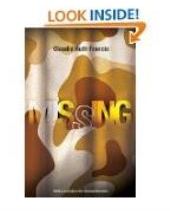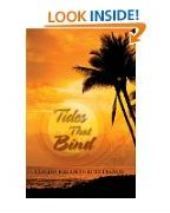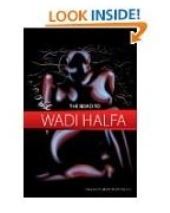Glossary
Glossary of Words Used in Tides That Bind – Book 1 – Island Issues & Book 2 – A Bigger Island
The following mini Glossary includes the words readers have asked the author to clarify. Please note that the language used does not belong in its entirety to any specific Caribbean island, but is drawn from a cross section of English speaking islands.
Caribbean - English
Chupse - a sound made using tongue, lips and teeth usually to express disdain
Pickanniny/Pickny - young child
Outside child – illegitimate or born to a woman other than the legal wife
Neem Tree - large evergreen tree
Flamboyant - large tree with red and orange bloom found in tropics
Poor Man Orchid - A tree with lilac flowers resembling orchids
Brock - broken
Iron Band - instruments made largely from remnants of iron, a format passed down from Africa
Wall House - concrete house
Yard - outside area or garden
Wet Nurse - a woman with breast milk prepared to feed a needy baby
Likkle - little
Anyting - anything
Tink - think
me - I
wid - with
Standpipe - tap/faucet delivering government provided water at the side of the road
Ling Fish - salted cod fish
Gub gub - pidgeon peas or any edible bean, leaf or pea
Fig - banana
Old Year’s Night - New Year’s Eve
Roti - type of pastry folded around lightly curried goat, beef, chicken or vegetables
Arawacks & Caribs - Inhabitants of the islands in the Caribbean before Europeans & Africans.
Mongoose - similar to a squirrel. It moves very quickly. The mongoose was introduced to the Caribbean by the British to kill snakes. It did this job but multiplied quickly and became a pest itself
Glossary of Words Used in The Road to Wadi Halfa
Wadi Halfa is a town on the shores of Lake Nasser in the north of The Sudan. It serves those people coming in from Egypt. It used to be a fishing village.It is surrounded by the dunes of The Nubian Desert, the eastern edge of The Sahara. It has a population of approximately 15,000.
In my books, where appropriate Arabic and French words and phrases are followed by English to assist the reader who will most likely be English speaking. However this is not always justified; therefore the following mini dictionary is to clarify where immediate translation has been omitted. In Arabic the written word does not use capital letters inthe same way as the English language.
Arabic - English
as-salaamu alaikum - Peace is upon you. (The classic phrase used as one enter or leaves anywhere in the Arab World; it is the official Islamic greeting)
wa ‘alaikum as-salaam - And peace is upon you too.
wa ‘alaikum as-salaam wa-ra Hmat ulaahi wa barakaatuh - And peace is upon you too, as well as God’s mercy and his blessings.
al-alaah/Allah – God
quaada / qaa’id – qaedaleader or chief
al-maseeHey-ya - Christian
al-quraan /qur’an - Koran
Wahabi / Wahhabi - Member of a Muslim puritan sect founded by Muhammed ibn Abd-el-Wahhab 18th Century
sabaaH al-Khair - Good morning
masaa’ al-Khair - Good evening
walad - boy
Sagheer - little
awall - first
rouman - pomegranate (a fruit full of seeds)
ab - father
umm - mother
jidd - grandfather
khadima - maid
muTaabiq - identical
taw’am / tawaa’imtwin - twins
timsaah - crocodile
matHaf - museum
ikhiTaff - kidnap
an-neel - Nile
wadi - riverbed
al-KuHool - alcohol
sha bi-nana - mint tea
shwarma fuul - meat & beans
al-akl saakhin - the food is warm
yusri’ - hurry
yashtim - verbal abuse
Map from page 9 of Missing.




